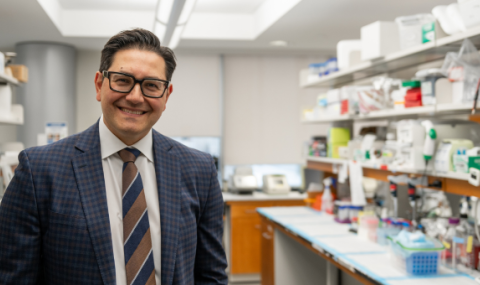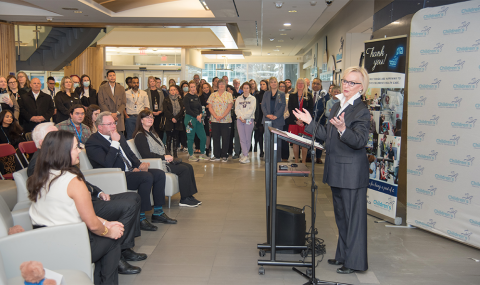Following the recent announcement of the historic donation from Archie and Irene Verspeeten to transform cancer care at LHSC, please expect content on this site to undergo some changes between now and through Spring 2024. Thank you for your patience.
What is a Power of Attorney for Personal Care?
A Power of Attorney for Personal Care is a legal document that gives a person the right to make personal care decisions on behalf of another person. This is usually done when the person is mentally unable to make decisions with:
- Healthcare
- Nutrition
- Clothing
- Shelter
- Hygiene
- Safety
The Substitute Decisions Act (Ontario, 1996) allows you to appoint someone you trust, in advance, to make these decisions for you when you are no longer able.
The person you appoint is called your Power of Attorney for Personal Care (Attorney). It is important to choose someone who understands your beliefs and values with respect to life and health. You can appoint more than one person, if you wish.
You can give your Attorney special instructions about the kind of care you want, or do not want, in certain situations.
You do not have to appoint an Attorney. This is your choice.
What if I don’t have or want a Power of Attorney for Personal Care?
If you do not choose a Power of Attorney for Personal Care, the health care team that is treating you will find someone for you when you can no longer make these decisions. According to the Health Care Consent Act (Ontario, 1996), they will look to the Substitute Decision Makers list to find someone who can give consent on your behalf. The list of priority is as follows:
- Spouse or partner;
- Parent or child (child must be 18 years or older);
- Parent having only a right of access;
- Brother or sister;
- Any other relative.
The following people cannot have a Power of Attorney for Personal Care:
- Family doctor (unless they are related to or partnered with the patient);
- Anyone who provides you with residential services for compensation.
How do I choose a Power of Attorney for Personal Care?
Choosing someone to be your Power of Attorney for Personal Care is a very serious matter. Your Attorney may need to make important decisions about your well-being and quality of life.
If you choose to appoint a Power of Attorney for Personal Care, it is important that you do so of your own free will and without pressure from anyone else. It is also important that you speak to the person you appoint and discuss your wishes regarding treatment and other health care matters.
You do not need a lawyer in order to make the Power of Attorney for Personal Care legal. However, it is a good idea to talk to one.
Your lawyer can write a Power of Attorney for Personal Care or you can buy forms from a bookstore. You can also find forms on the Internet. The Office of the Public Guardian and Trustee provides Power of Attorney forms. You can request these by calling 416-314-2800 or toll free at
1-800-366-0335.
You can also access them online at:
http://www.attorneygeneral.jus.gov.on.ca/
english/family/pgt/poa.pdf
When does the Power of Attorney for Personal Care become effective?
The Power of Attorney for Personal Care only becomes effective when you can no longer direct your care. This is different from the Power of Attorney for Property (finances), which sometimes becomes effective the moment you sign it, whether you are mentally capable or not.
By signing a Power of Attorney for Personal Care you are not giving up the ability to make your own decisions. No one can make decisions on your behalf if you are capable of making those decisions yourself.
Where can I get more information?
If you have questions please call Supportive Care, London Regional Cancer Program at 519-685-8622. You can also contact the Palliative Medicine Program at 519-685-8600 extension 58615 or go on-line at www.healthline.ca to find resources and experts near your area.
References
- Powers of Attorney, information booklet from The Public Guardian and Trustee and Ontario Ministry of the Attorney General (2004).


